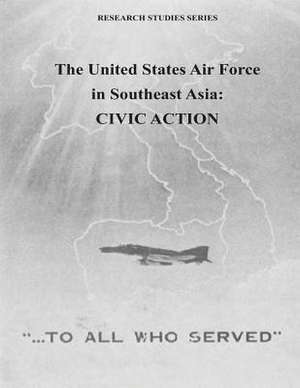The United States Air Force in Southeast Asia
Autor Office of Air Force History, Us Air Forceen Limba Engleză Paperback
Preț: 136.75 lei
Nou
Puncte Express: 205
Preț estimativ în valută:
26.17€ • 26.97$ • 22.10£
26.17€ • 26.97$ • 22.10£
Carte disponibilă
Livrare economică 10-24 februarie
Preluare comenzi: 021 569.72.76
Specificații
ISBN-13: 9781508815907
ISBN-10: 1508815909
Pagini: 286
Dimensiuni: 216 x 279 x 15 mm
Greutate: 0.67 kg
Editura: CreateSpace Independent Publishing Platform
ISBN-10: 1508815909
Pagini: 286
Dimensiuni: 216 x 279 x 15 mm
Greutate: 0.67 kg
Editura: CreateSpace Independent Publishing Platform
